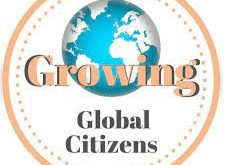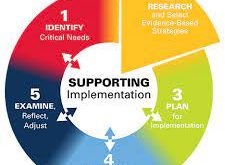In an era marked by interconnectedness and a rapidly changing global landscape, the concept of cultivating global citizens has gained paramount importance in the field of education. As we navigate through the 21st century, the traditional boundaries that once confined us to localized perspectives are becoming increasingly obsolete. Today’s students are not just learners within the confines of a classroom; they are inhabitants of a world that is intricately linked through technology, trade, and shared challenges. Cultivating global citizens is not merely an educational objective; it is a societal imperative that transcends geographical borders, aiming to foster a sense of shared responsibility for the well-being of our planet and its diverse inhabitants.
Understanding Global Citizenship
At its core, global citizenship goes beyond national identities, emphasizing a broader sense of belonging to the global community. It encompasses a mindset that recognizes the interconnectedness of all people and the shared responsibility for addressing global issues. Global citizens are individuals who possess an awareness of the world around them, understanding that their actions can have far-reaching consequences and implications beyond their immediate surroundings.
The Role of Education in Cultivating Global Citizens
Education stands as a powerful catalyst in shaping the perspectives and values of individuals, making it a pivotal force in cultivating global citizens. Schools and educational institutions play a central role in providing the knowledge, skills, and attitudes necessary for students to thrive in an interconnected world.
**1. Cultural Awareness and Sensitivity:
One of the cornerstones of global citizenship is the ability to appreciate and respect cultural diversity. Educational curricula should be designed to expose students to various cultures, traditions, and perspectives. By fostering cultural awareness and sensitivity, students can develop a genuine understanding and appreciation for the richness of human diversity.
**2. Critical Thinking and Problem-Solving:
Global citizens must be equipped with the skills to analyze complex issues, think critically, and propose effective solutions. Education should go beyond rote memorization and encourage students to engage in interdisciplinary learning, enabling them to address multifaceted global challenges.
**3. Digital Literacy and Technological Competence:
In the digital age, technology serves as a bridge that connects people across continents. Educational programs should incorporate digital literacy and technological competence to prepare students for a world where collaboration and communication often transcend physical boundaries.

**4. Environmental Stewardship:
Global citizenship involves a commitment to environmental sustainability. Education should instill a sense of environmental responsibility, promoting eco-friendly practices and a deep understanding of the interconnectedness between human activities and the health of the planet.
**5. Social Justice and Equity:
A global citizen is inherently concerned with social justice and equity. Education should emphasize the importance of fairness, inclusivity, and empathy, fostering a commitment to addressing societal inequalities on a global scale.
Experiential Learning and Global Exposure
Beyond the confines of the classroom, experiential learning and global exposure play pivotal roles in cultivating global citizens. Educational institutions should provide opportunities for students to engage in international exchanges, cultural immersion programs, and collaborative projects with peers from diverse backgrounds. These experiences not only broaden students’ perspectives but also instill a sense of global interconnectedness that goes beyond theoretical understanding.
Challenges and Opportunities in Cultivating Global Citizens
While the importance of cultivating global citizens is widely acknowledged, there are challenges that educators and policymakers must navigate to ensure its effective implementation.
**1. Curricular Integration:
Integrating global citizenship education into existing curricula can be challenging. However, it is essential to weave global perspectives seamlessly into various subjects, ensuring that students recognize the global dimensions of their learning.
**2. Teacher Training and Professional Development:
Educators play a pivotal role in shaping the minds of the next generation. Providing teachers with adequate training and professional development opportunities is crucial to equip them with the knowledge and skills necessary to foster global citizenship among their students.
**3. Access to Resources:
Disparities in access to educational resources can hinder efforts to cultivate global citizens. It is imperative to address these disparities and ensure that all students, regardless of their socio-economic background, have access to quality global citizenship education.
**4. Cross-Cultural Competence:
Developing cross-cultural competence requires exposure to diverse perspectives. Institutions must actively seek ways to facilitate interactions between students from different cultural backgrounds, fostering mutual understanding and collaboration.
The Impact of Global Citizens on Society
Cultivating global citizens is not an isolated endeavor; it is a collective investment in the future of humanity. As individuals develop into global citizens, they become catalysts for positive change within their communities and beyond.
**1. Promoting Peace and Understanding:
Global citizens are more likely to value peace and understanding, recognizing the futility of conflicts driven by narrow nationalistic interests. By promoting a sense of shared humanity, they contribute to the creation of a more peaceful and harmonious world.
**2. Addressing Global Challenges:
From climate change to poverty, global citizens are better equipped to address the pressing challenges that transcend borders. Their interconnected worldview and collaborative mindset enable them to work collectively towards sustainable solutions.
**3. Advocacy and Social Responsibility:
Global citizens often emerge as advocates for social justice, human rights, and sustainable practices. They use their knowledge and influence to raise awareness and effect positive change on a local and global scale.
Conclusion: Towards a Unified World
In conclusion, cultivating global citizens is a fundamental pursuit that transcends the confines of traditional education. It requires a holistic approach that integrates cultural awareness, critical thinking, and a commitment to social and environmental responsibility. By fostering a sense of shared humanity and interconnectedness, we pave the way for a future where individuals, equipped with a global mindset, actively contribute to building a more unified and sustainable world. As we continue to navigate the complexities of the 21st century, the cultivation of global citizens stands as a beacon of hope, inspiring a new generation to embrace their role as stewards of a shared planet.
https://www.pinterest.com/yehrishtame/
https://groups.google.com/g/pinoy-tambayan-lambingan/c/MEEf0UVOgOY
https://medium.com/@yehrishtame
https://disqus.com/by/yeh_rishta/about/
https://www.scribd.com/user/725749838/yehrishtame
https://issuu.com/yehrishtakyakehlatahaiiin
https://www.goodreads.com/user/show/175639724-yeh-rishta
https://www.wattpad.com/user/yehrishtame
https://www.ted.com/profiles/46232544
https://www.behance.net/yehrishta1
https://about.me/yehrishtame
https://sites.google.com/view/yehrishtakyakehlatahaiin/
https://www.producthunt.com/@yeh_rishta1
https://www.ultimate-guitar.com/u/yehrishtame
https://www.zazzle.com/mbr/238444763324131831
https://www.blogtalkradio.com/yehrishtame
https://audiomack.com/yehrishtame
https://vc.ru/u/2941662-yeh-rishta
https://www.mixcloud.com/YRKKH1/
https://pubhtml5.com/homepage/hninl/
https://solo.to/yehrishtakyakehla
https://www.ethiovisit.com/myplace/YRKKH
https://gravatar.com/badeachhelagtehain2co
https://chng.it/jSLWrF6Wxq
https://www.coursera.org/user/7df8b2308c8bb510aa71f2a15cfd6f2d
https://www.youtube.com/channel/UCzaCpXok9gjygv8lAfzeM-g
https://public.tableau.com/app/profile/yeh.riahta.kya.kehlata.hai/vizzes
https://www.quora.com/profile/Yeh-Rishta-3
https://www.kickstarter.com/profile/547686661/about
https://www.instapaper.com/read/1665980139
https://stocktwits.com/YRKKH1
https://my.archdaily.com/us/@yrkkh
https://www.myminifactory.com/stories/yeh-rishta-kya-kehlata-hai-65db87e9112e7
https://www.pexels.com/@yeh-rishta-kya-kehlata-hai-526324723/
https://wakelet.com/@YRKKH
https://www.spoonflower.com/profiles/yrkkh?sub_action=shop
https://hashnode.com/@YRKKH
https://dzone.com/users/5094408/yrkkh1.html
https://www.webtoolhub.com/profile.aspx?user=42380691
https://www.sutori.com/en/yeh-rishta-kya
https://tapas.io/biggboss16videocom
https://www.graphis.com/bio/yeh-rishta-kya/
http://www.virtualdj.com/user/YRKKH/index.html
https://substack.com/@yrkkh
https://www.credly.com/users/yeh-rishta-kya/badges
https://community.hodinkee.com/members/YRKKH
https://pxhere.com/en/photographer/4197968
https://qiita.com/YRKKH1
https://hackaday.io/YRKKH
https://replit.com/@badeachhelagteh
https://www.linkedin.com/in/yeh-rishta-kya-3076762b7/


